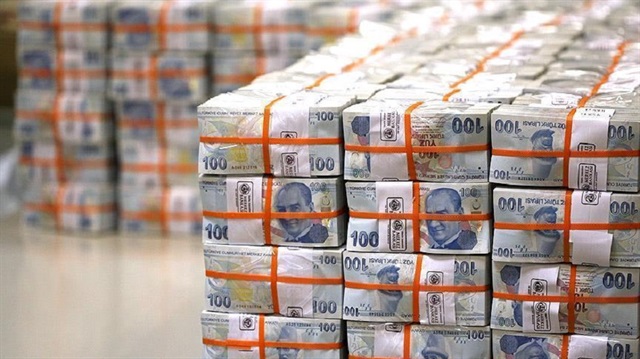

File photo
Turkey’s economy has seen significant improvement and diversification under leadership of President Erdoğan, experts say
Turkey’s fiscal structure is strong enough to survive financial pressures caused by political considerations, according to Lebanese economy experts.
In a discussion with Anadolu Agency on Wednesday, several Lebanese economy experts evaluated the recent speculative attack on Turkey’s lira and its possible consequences.
Mohammed Shuayr, chairman of the Lebanese Union of Commercial Chambers, said it was difficult to shake the Turkish economy thanks to its high export potential and dynamic tourism sector.
“I've been following developments in Turkey closely,” he said. “Recent fluctuations in the lira’s value won’t affect the wider economy.”
Turkish history, he went on to point out, was full of such economic hiccups.
“It may take time for the lira to recover, but I'm sure the [Turkish] authorities will do whatever is necessary to resolve the problem,” Shuayr said.
Under the leadership of President Recep Tayyip Erdogan, he added, Turkey’s economy had seen significant improvement and diversification.
“The Turkish economy cannot collapse,” he asserted. “The overall consistency of the country’s economic sectors has shown this.”
Growth
Lebanese economy analyst Ghazi Vazna, for his part, pointed out that Turkey’s economy had sustained a growth rate of between 5 and 7 percent during the period from 2001 to 2017.
“Along with a decrease in inflation rates,” he said, “this period saw the launch of several major initiatives in different sectors of the economy, especially tourism.”
“Today,” Vazna added, “Turkey is one of the region’s leading tourist destinations, hosting more than 32 million tourists per year, which means an annual revenue of some $26 billion.”
According to the analyst, Turkey’s real-estate and banking sectors have also enjoyed considerable growth in recent years.
“With its strategic location in the region,” he said, “the Turkish banking sector has only grown stronger.”
'Positive'
Vazna attributed recent fluctuations in the Turkish lira’s value against the dollar to foreign speculative attacks and political tensions with the U.S.
“The Turkish authorities may not be able to stabilize the currency, but they can ease the problem by pursuing sound domestic monetary policies,” he said.
“This can be achieved by raising interest rates and providing banks with adequate liquidity,” he added.
Recommending that Turkey strengthen its economic relations with the BRICS group of nations (Brazil, Russia, India, China, South Africa), Vazna went on to note that Turkey’s annual trade volume with Russia currently stood at a whopping $17 billion.
“Turkey can also work to forge strong economic ties with China, which represents the world’s second largest economy,” he said.
While Turkey’s initial response to the currency fluctuations has been “positive”, Vazna added, it still must take steps to reassure skittish investors and international markets.
Turkey and the U.S. are currently experiencing rocky relations when Washington imposed sanctions on Turkey’s interior and justice ministers in response to Ankara’s refusal to release an American pastor who faces terrorism-related charges in Turkey.
Last Friday, U.S. President Donald Trump upped the ante by doubling U.S. tariffs on Turkish aluminum and steel imports.
In response, Turkey raised tariffs on several U.S.-made goods, including alcohol and tobacco products and vehicles.
#economy
#experts
#fiscal
#Lebanon
#Turkey





